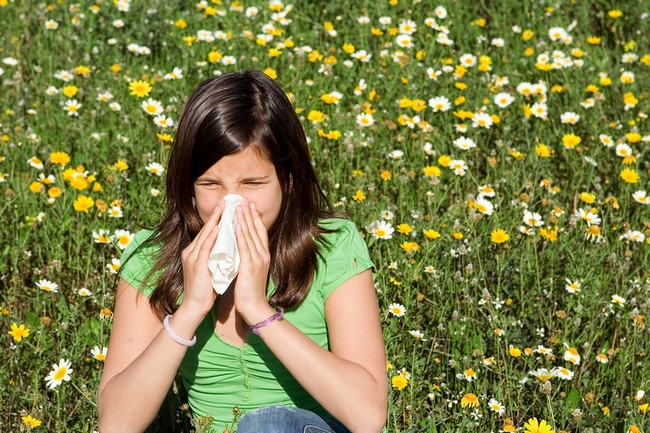- Make It Yourself Lavender Heart-Shaped Bath Bombs!
- 20 Things You Never Knew About “Down There”
- 12 Best Foods For Those Suffering From Arthritis Pain
- 12 Personal Hygiene Mistakes Almost Everyone Makes (Mom Never Told You About #4!)
- 15 Medicinal Plants And Herbs From The Cherokee People
- 12 Mind-Blowing Benefits Of Drinking Coconut Water During Pregnancy
- 12 Outstanding Winter Foods That Won’t Fatten You Up Like A Christmas Turkey
Top 12 Most Effective Herbs for Hay Fever and Allergies

Photo credit: bigstock.com
As tired as everyone might be of snow and cold, what follows is spring and springtime allergies. If you suffer from hay fever or other types of springtime allergies, you probably have a hard time deciding which is worse, winter weather or spring allergies.
Some allergies, such as hay fever, are seasonal issues which are often caused by the body’s immune system overreacting to harmless substances such as pollen, mites, dust, or mold. Other types of allergies can be caused by numerous factors including nutritional, infectious, or genetic issues. These types of allergies continue to increase even though there are numerous pharmaceutical “treatments.” A third type of allergic reaction is from certain foods or ingredients.
It has been estimated that about 40 percent of the population in the US has some sort of sensitivity to allergens. Although you probably turn to antihistamines to relieve your symptoms, these drugs are absorbed by the brain and cause sleepiness or daytime drowsiness. Herbal remedies don’t have these types of side effects. Herbs work differently than antihistamines because they work to protect the cells from histamines instead of blocking the body from producing them, as most pharmaceuticals do.
Here are the 12 best herbs that can provide relief from allergies and the discomfort they cause.
1. Garlic and Onions
This is perhaps the safest and easiest way of relieving and preventing allergies. Raw garlic and onion contain high levels of quercetin. Research shows that quercetin is a natural anti-inflammatory and stabilizes cells to help stop the introduction of histamine causing inflammation. Try adding plenty of raw onions to your lunchtime salads. You can also crush two or three cloves of raw, organic garlic and swallow them each morning for allergy protection all day.
2. Bromelain
Not technically an herb, but this works so well it deserves to be on this list. Bromelain is a natural enzyme that is found in the stems of pineapples. Studies show bromelain reduces the production of mucus and swelling of the nasal passages. One study performed in 2012 showed that mice who received this enzyme had significant anti-inflammatory activity in the lungs, which means this enzyme can have some powerful therapeutic value for those who suffer from allergies or asthma. You can buy bromelain extracts in a supplement form at your local health food store.
3. Ginkgo Biloba
Many people think ginkgo is only good for the cardiovascular system and energy but ginkgo has also been shown to have a significant effect when it comes to managing allergies and asthma. Ginkgo has powerful anti-inflammatory compounds and naturally contains seven antihistamines, which make this a natural and effective way to get relief from the symptoms of allergies. Ginkgo also has compounds called ginkgolides, which have been shown in studies to be quite effective in relieving allergies, asthma attacks, and other lung problems. Ginkgolides relive inflammation by killing free radicals and allow more oxygen into the lungs so those who suffer from asthma and allergies are able to breathe more easily. Be sure to buy gingko from a quality source, as many of the cheaper brands, especially those from China, have been found to contain little or no real gingko biloba.
Continue to Page 2
































